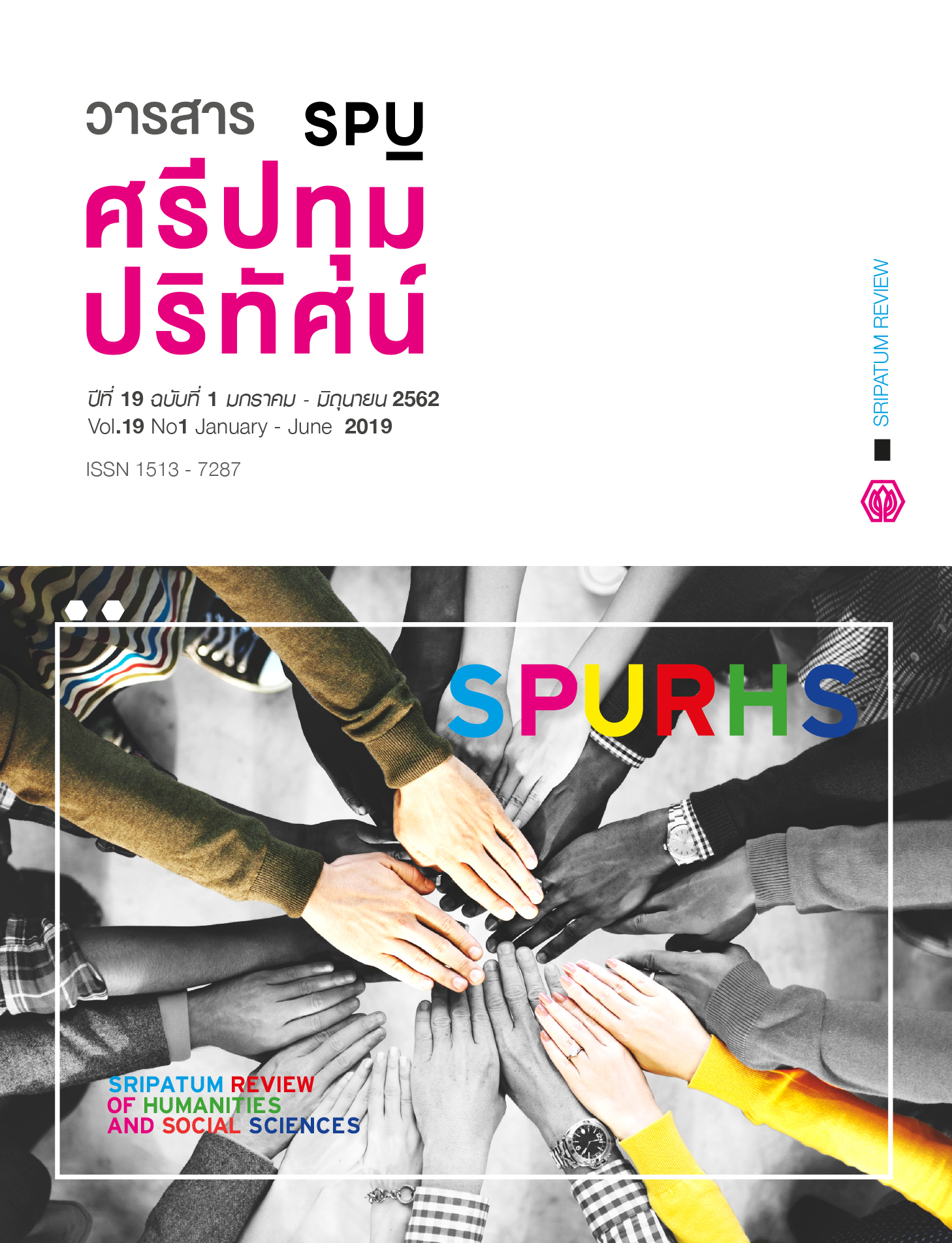การพัฒนาทุนมนุษย์ตามแนวพุทธ : ยุคไทยแลนด์ 4.0 (Buddhism-based Human Capital Management in Thailand 4.0 Era)
Main Article Content
Abstract
This article aims to present the concept of human capital development in a knowledge-based organization in order to equip its personnel with knowledge, ability and competitive competencies, which are factors that enhance the organization to achieve its goals based on its strategy, with application of the principles of Buddhism for development of human capital leading to feelings, attitudes, values, and behavioral expression. The goal of Buddhist human capital development is to enable the personnel to be competent, good and virtuous. The main dhamma principles for human capital development are the four Bhavana principles: 1) Kaya-bhavana which is the physical growth; 2) Sila-bhavana which is the development of behaviors to have good discipline and to be able to live well with the others; 3) Citta-Bhavana which is the development of a strong and stable mind; and 4) Panna-bhavana which is the development of intelligence to cope with the world and to be able to solve problems. These four Bhavana principles will enhance human capital development in the organization to achieve good competitive competencies. So the development of human capital in Thailand 4.0 Era is the preparation of people and creation of innovations in order to connect and gain access to technology. In coping with changes, it is necessary to have effective human capital management together with mental development and the development of technology that is ever-changing.
Article Details
1. กองบรรณาธิการสงวนสิทธิ์ในการพิจารณาและตัดสินการตีพิมพ์บทความในวารสาร
2. บทความทุกเรื่องจะได้รับการตรวจสอบทางวิชาการโดยผู้ทรงคุณวุฒิ แต่ข้อความและเนื้อหาในบทความที่ตีพิมพ์เป็นความรับผิดชอบของผู้เขียนแต่เพียงผู้เดียว มิใช่ความคิดเห็นและความรับผิดชอบของมหาวิทยาลัยศรีปทุม
3. การคัดลอกอ้างอิงต้องดำเนินการตามการปฏิบัติในหมู่นักวิชาการโดยทั่วไป และสอดคล้องกับกฎหมายที่เกี่ยวข้อง
References
Division of Research Administration and Educational Quality Assurance, Phayao University. (2017). Blueprint Thailand 4.0 model pursues Security, Prosperity and Sustainability. [online], Retrieved October 10, 2517, from: http://www.libarts.up.ac.th/ v2/img/ Thailand-4.0.pdf. (in Thai)
Wetchayanon, N. (2008). High Performance Organization, High Performance Work, Managing Talent. Bangkok: Grafico System Company. (in Thai)
Ninprasert, P. and Piriyakul, R. (2018). The Influence of Goal Commitment, Knowledge Acquisition and Communication on Organizational Attachment: The Direct Sale Representatives’ Self-Concept as The Mediating Factor. Sripatum Review of Humanities and Social Sciences, 18 (1) 38-46. (in Thai)
Phra Prom Kunaporn (Prayudh Payutto). (2003). Dictionary of Buddhism: Vocabularies.12th Edition. Bangkok: Mahachulalongkornrajavidyalaya University. (in Thai)
Khumthong, P. (2017). Human Development begins from Mind Development [online], Retrieved November 11, 2017, from: http://blog.mcp.ac.th/?p=20117. (in Thai)
Phrathep Waetee (Prayudh Payutto). (1993). How to Develop Human Resource. Bangkok: Sahathamic Publishing. (in Thai)
Kusumavalee, S. (1997).Thailand in the Next Decade Knowledge Organization Establishment. Bangkok: NIDA. (in Thai)
Thonggumnerd, S. (2017). Human Resource Management in Thailand 4.0 Era [online], Retrieved November 11, 2017, from: http://www.awc.ac.th/awcdata//.pdf. (in Thai)
Maesincee, S. (2016). Decode Thailand 4.0 Create New Economics Step Over Middle Income Trap [online], Retrieved November 11, 2017, from: https://www.thairath.co.th/content/613903. (in Thai)
Suktham, W. (2012). Buddhist Approach to Human Capital Development in the Age of Globalization. Thesis of Doctor of Public Administration Program. Pathum Thani:
Walailongkorn Rajabhat University under the Royal Patronage. (in Thai)
Wright, P. M. and McMahan, G. C. (1992). Theoretical perspectives for strategic human resource management. Journal of Management, 18 (2), 295.


